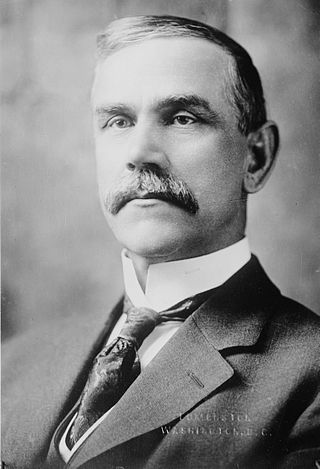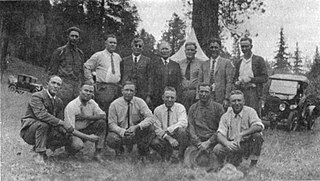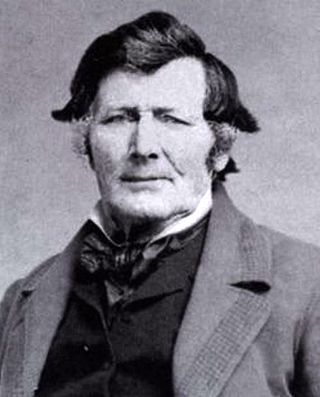This article needs additional citations for verification .(December 2012) |
This is a chronological listing of significant events surrounding Latter Day Saints seeking or winning political office. It refers primarily to members of the Church of Jesus Christ of Latter-day Saints (LDS Church), but also some members of other Latter Day Saint movement religions, such as Community of Christ, formerly the Reorganized Church of Jesus Christ of Latter Day Saints (RLDS). In addition to listing events chronologically, political firsts are noted. This list is very incomplete.
- 1838
- John Corrill elected to the Missouri House of Representatives.
- This was the first Latter Day Saint elected to a state office in any state.
- 1841
- William B. Smith elected to the Illinois House of Representatives.
- This was the first Latter Day Saint elected to a state office in Illinois.
- This was the first time a member of the Smith Family was elected to office.
- 1842
- Joseph Smith elected Mayor of Nauvoo.
- 1844
- Joseph Smith declares himself a candidate for President of the United States. He is assassinated during his campaign. [1]
- This was the first Latter Day Saint to run for president.
- This was the first Latter Day Saint assassinated in office (as Mayor of Nauvoo).
- 1850
- Brigham Young is appointed Governor of Utah Territory.
- This is the first Latter Day Saint to hold a U.S. governorship.
- 1853
- Jefferson Hunt is elected to the California State Assembly.
- This is the first Latter Day Saint elected to state office in California.
- James J. Strang is elected to the Michigan Legislature.
- This is the first Latter Day Saint elected to state office in Michigan.
- 1855
- James J. Strang is reelected to the Michigan Legislature.
- 1858
- Brigham Young removed from office as Governor of Utah.
- 1896
- Utah gains statehood.
- Martha Hughes Cannon first woman elected to any state senate in U.S. history (Utah).
- Heber Manning Wells elected Utah Governor.
- This is the first Latter Day Saint to be Utah governor since Brigham Young.
- This is the first Latter Day Saint to be elected governor of any state.
- Frank J. Cannon elected U.S. Senator from Utah
- First Latter-day Saint elected to the Senate. (Cannon later left the LDS Church and became a bitter anti-Mormon.)
- 1902
- Reed Smoot elected to the U.S. Senate in Utah.
- First LDS Church General Authority elected to the Senate.
- 1911
- Israel A. Smith elected to the Iowa State Legislature.
- First direct descendant of Latter Day Saint movement founder Joseph Smith to be elected to political office.
- 1922
- George Sutherland appointed to the U.S. Supreme Court.
- 1928
- J. Reuben Clark appointed U.S. Undersecretary of State.
- 1930
- J. Reuben Clark appointed U.S. Ambassador to Mexico.
- 1940
- Berkeley Bunker appointed U.S. Senator from Nevada.
- First Latter Day Saint to hold national office from Nevada.
- First Latter Day Saint U.S. Senator from outside Utah.
- 1944
- Berkeley Bunker elected to U.S. House of Representatives from Nevada.
- 1953
- Ezra Taft Benson appointed U.S. Secretary of Agriculture.
- Ivy Baker Priest appointed U.S. Treasurer.
- 1961
- Stewart Udall appointed U.S. Secretary of the Interior.
- 1962
- George W. Romney elected Governor of Michigan.
- 1968
- George W. Romney declares candidacy for President of the United States (as Republican).
- First Latter Day Saint to run for a major party's presidential nomination.
- 1969
- David Matthew Kennedy appointed U.S. Secretary of Treasury.
- George W. Romney appointed U.S. Secretary of Housing and Urban Development.
- 1976
- Mo Udall declares candidacy for President of the United States (as Democrat).
- 1980
- Paula Hawkins elected to U.S. Senate from Florida.
- 1981
- Terrel Bell appointed U.S. Secretary of Education.
- 1982
- Bay Buchanan baptized into LDS Church as sitting U.S. Treasurer.
- Harry Reid wins election as a representative from Nevada.
- 1985
- Jake Garn becomes first sitting U.S. Senator to fly in space.
- 1986
- Harry Reid wins election as a Senator from Nevada.
- 1988
- Evan Mecham impeached and removed from office as Governor of Arizona
- 1999
- Three members of the Udall family serve in Congress simultaneously. Two are Latter-day Saint.
- 2000
- Orrin Hatch declares candidacy for President of the United States (as Republican).
- 2002
- Mitt Romney elected Governor of Massachusetts.
- 2004
- Harry Reid becomes the Democratic Leader of the United States Senate, and the Senate Minority leader
- 2005
- Michael O. Leavitt appointed U.S. Secretary of Health and Human Services.
- 2007
- Harry Reid becomes Senate Majority Leader
- Mitt Romney announces his candidacy for the U.S. presidency.
- 2011
- Mitt Romney announces his candidacy for the U.S. presidency.
- First Latter Day Saint to receive a major party's presidential nomination.
- Jon Huntsman, Jr. announces his candidacy for the U.S. presidency.
- 2016
- Evan McMullin announces his candidacy for U.S. presidency.













